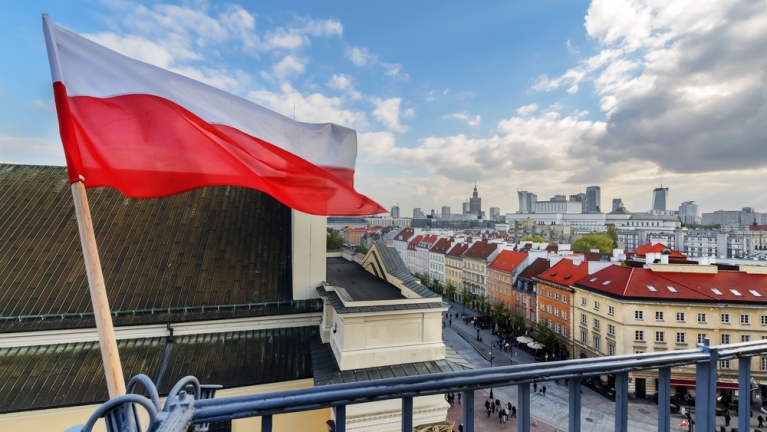The perception of the role and function of journalism is quite different in Hungary – indeed, in all formerly communist countries – from what it is in the West. For Westerners, journalism is the „fourth power” of democracy. It aims to keep politicians honest. Media act as a check and balance to political power.
This is not what most Hungarians think. Many journalists themselves don’t believe this. Certainly, no politician does. For them, journalism is not a check on power. It’s an instrument of power. No matter wether they help the government or fight it, the media are seen as weapons in the political power game.
During the „round table” discussions of 1989/90, where communists and opposition groups negotiated the details of a transition to democracy, the opposition failed to obtain a meaningful restructuring of the state media. The state television monopoly remained. The „round table” agreed that a new media law should be passed only with a two-thirds majority in the first freely elected parliament, in order to make it impossible for any government to decide without consent of the opposition. But the effect of this was to preserve the state monopoly for audiovisual media and, as a consequence, the continued influence of socialist sympathizers within these media.
Only in 1997, when a leftwing coalition of socialists (MSZP) and liberals (SZDSZ) had a two-thirds majority, was a new media law passed. Only now was the market opened up for commercial competitors, TV2 and RTL. Both turned out to be quite friendly towards the socialist government. Maybe they were grateful for the license.
Janos Betlen, a prominent figure at state broadcaster MTV in those years, has been quoted with saying that there was never a chance to develop independent jounalism there. „We believed that we could, but we were naive. Left-liberals tried to dominate, there were few conservatives, and they felt opressed. (...) Antall felt persecuted by the media. There was some truth to that”.
As for the printed media, their dominant market position (inherited from communism) attracted the interest of foreign investors. German-Hungarian Axel Springer Hungaria ended up owning most regional papers. Editors and journalists from communist times mostly remained in their jobs. The daily newspaper Népszabadság – it had been the organ of the communist party - was partly aqcuired by the German company Bertelsmann, and later the Swiss publishing house Ringier. The socialists retained a stake, and influence, through a foundation called „szabad sajtó alapitvány” (Free Press Foundation).
The socialists’s continued influence in formerly communist state media was protected by the fact that these media were now partly foreign-owned. To criticize them for political bias therefore counted as bad taste, as an attack on press freedom.
The socialist party ended up selling its stake in Népszabadság in 2015 (after declining to buy the paper back from its Austrian owner Heinrich Pecina, who had asked them). Still, all of the formerly communist media remained close to the political left – except for Magyar Nemzet, which had been an exception even under communism.
The first complaint about Orbáns rule came when his government introduced a new media law in 2010 as one of its first measures. It installed a new Media Authority, and critics said it was staffed mainly with Fidesz sympathizers. One report by the German news agency Deutsche Presse Agentur stated that the new media authority would be able to punish media outlets for whatever it deemed „unbalanced reporting”, with fines of up to 90.000 Euros. Mainstream newspapers believed and published it, accusing Fidesz of censorship. The report was untrue, as it turned out. But the perception remained.
Another complaint concerned the centralization of public television and radio. By 2010, these reached only five percent of the population, but were controlled by four different institutions with 150 staffers. That was now reduced to just one central authority. In itself this was a sensible move, and financially rational.
Public media had always been quite loyal to the government of the day. But under Fidesz a much closer relationship developed. Opposition politicians tend to get less air time than government politicians. Public media often follow the strategic narratives of the government’s political communication. For instance, during the migrant crisis, the subject was approached mainly from the point of view of national security and public safety.
Criticism reached an apogee when, in 2016, the biggest political daily, leftwing „Népszabadság”, was discontinued by its Austrian owner Heinrich Pecina, who then went on to sell the rest of his media empire, called „Mediaworks”, to Lőrinc Mészáros, a businessman close to Viktor Orbán. Mediaworks includes most regional newspapers. Népszabadság had been a drain on Pecina’s finances, but many critics claimed that its closure was politically orchestrated by Fidesz.
The next outcry came after Fidesz won the elections in 2018. „Magyar Nemzet” and the weekly political magazine „Heti Válasz” disappeared. Magyar Nemzet had been rightwing, and Heti Válasz liberal-conservative. But both had become critical of the government after their owner, former Orbán ally Lajos Simicska, fell out with Orbán after the elections in 2014. Now, in 2018, Simicska gave up. He closed both papers.
Then, in 2020 ownership structures changed at Hungary’s biggest news portal, Index.hu. Most of the journalists left, and founded a new portal called telex.hu. It quickly became one of the biggest competitors on the market, consistently scoring third or fourth place in digital media rankings on most days.
The biggest TV channel, German-owned RTL, is critical of the government. So is the biggest daily, tabloid „Blikk”, owned by Swiss publishing House Ringier, whose online edition ranks among the top four in digital ratings on most days. The biggest political broadsheet is leftwing „Népszava”. The biggest weekly magazine is independent and critical „hvg”. Of the four biggest news portals - apart from „Blikk” - two are very critical of the government (24.hu and telex.hu). Index, under its new owners, has become more government-friendly, but also contains articles that hurt Fidesz. Only origo.hu is a decidedly pro-government news portal.
Hungarian still has a pluralistic media market, critical voices remain influent, and the spectrum of published political opinion remains broad. These are the most recent statistics: In September 2021, the most-viewed news site was the independent, politically critical portal 24.hu with almost 3,6 million real users. Second, third and fourth were centrist index.hu, pro-government origo.hu and and the foreign-owned, poltically independent website of the Swiss-owned tabloid Blikk, each with around 3,3 million real users.
Even if we accept the view that index.hu has come under indirect government influence, the result is still a digital media market tilted to the left, with 6.9 million real users for 24.hu and Blikk, and 6,6 million for index.hu and origo.hu.
Somewhat further down in the Top 20 we mainly find news portals that are vehemently critical of the government. Hvg.hu (7th place, 2,5 million real users), telex.hu (11th place, 2,3 million) and 444.hu, with two million real users in September 2021, ranking 17th. Two pro-government tabloids were among the Top 20 websites: Ripost.hu (9th place, 2,4 million users) and borsonline.hu (20thm 1,9 million users).
In total, amongst the Top 20, websites supporting, or not hostile to the government counted 11 million real users in September 2021. Internet outlets independent of, and critical of the government had 13,7 million.
It is true that most regional papers have been friendly to the government ever since 2016, when Mediaworks was bought by Orbán ally Lőrinc Mészáros. Also, in the countryside public TV is a main source of information for elderly citizens. Most radio stations can also be considered close to the government.
Still, the most dynamically growing and politically influential segment of the media market, news websites, is dominated by media critical of the government. So is the commercial sector with market leaders Blikk (tabloid), hvg (weekly) and RTL (TV). Young Hungarians mostly don’t watch television, and don’t read the papers. They get their information from the internet. Polls show that most Hungarians read both right- and left-leaning media.
Altogether, the media market of 2021 is less politically one-sided than that, say, 2005, in the socialist-liberal era. Hungary’s media continue to make life difficult for any government that be.
The simplest reason for this is Hungary’s legal guarantee for press freedom, enshrined in the constitution as well as in the media law of 2010. The practical consequence of this is that the market will always move to satisfy the demand for independent media. That demand is always there.
When some critical media disappeared, market share of other publications who satisfy that demand grew. The circulation of leftwing daily Népszava tripled to more than 20.000 after the former market leader Népszabadság was closed by its foreign owner. When the news portals Origo, and later Index, stopped being vocal critics of the government, another critical portal, 24.hu, rose to the top in internet rankings, while a new website, telex.hu, quickly ascended to the top 10.
It is true that Fidesz has tried to rebalance the media market, although not by direct political intervention, or censorship. But it is also true that, to a significant degree, large parts of the media had previously been under the political influence of the Left after the regime change in 1990.










